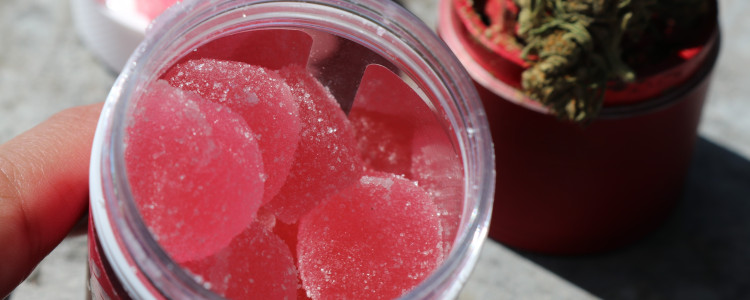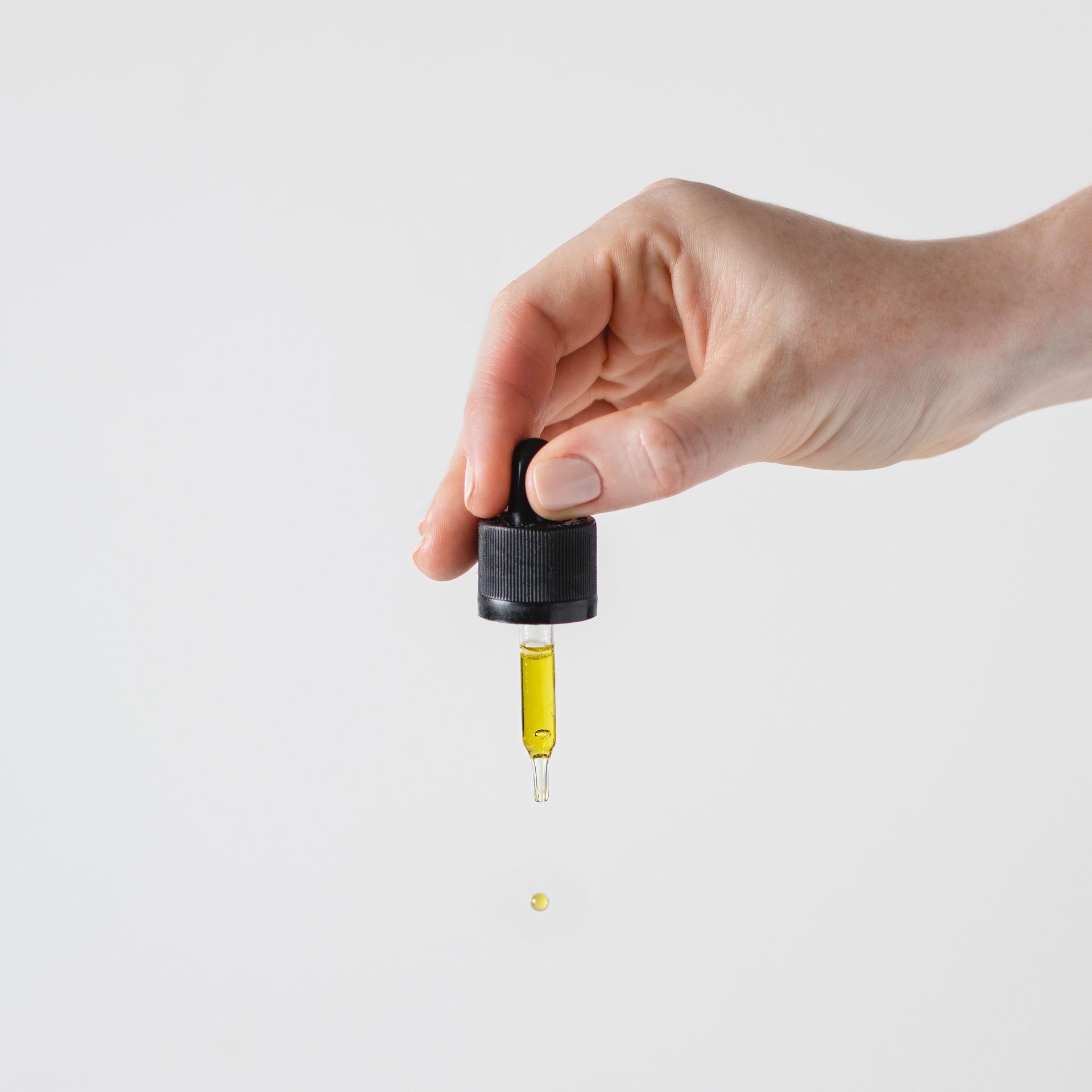Hemp-derived THC is becoming more and more popular. The rise of alternative forms of THC began primarily after the 2018 Farm Bill, which widely introduced the production of hemp products.
New forms of THC (such as delta-11) are constantly being discovered and created, especially as the expansion of the cannabis industry continues. These new forms of THC each have their own characteristics, uses, and benefits, taking advantage of the comprehensive benefits that THC can provide.
Before you run out to try delta-11, get to know this cannabinoid, which has an interesting history stretching back to its discovery in 1971.11 Delta-11 isn’t exactly like common delta-9 THC, with less overpowering effects and appealing properties that are driving its newfound popularity.
What is Delta-11?
If you’re familiar with delta-9 THC, then you may already know something about delta-11, as these two compounds are very similar.
So what’s the difference between them?
Not only do they have a different structure, but delta-9 produces more significant effects than delta-11 does.2
Delta-11 products use isolates made in a lab from existing cannabinoids found more abundantly within the hemp plant, like CBD. Delta-11 THC is often synthesized from delta-8 THC after it is synthesized from CBD.
At this point, it’s important to make a distinction. Delta-11 THC, the subject of this article, is a cannabinoid. On the other hand, 11-hydroxy-THC is a metabolite. These two are often confused. 11-hydroxy-THC is produced in the liver after someone consumes edibles. If you’re searching for additional information online, make sure you’re reading results about the cannabinoid (delta-11) and not the metabolite (11-hydroxy-THC).
Because there isn’t much research about delta-11 THC, much of the available information comes from anecdotal evidence.
What are the Effects of Delta-11, and How Strong is It?

Delta-11 may be mildly intoxicating and produces weaker effects than delta-9. Some common effects of delta-11 include:
- Relaxation
- Reduced anxiety
- Euphoria
- Strong “high”
Delta-11 produces a high that’s similar to other cannabis products, but is delta-11 strong? Research in mice has reported the potency of delta-11 THC to be 25x less potent than delta-9 THC.
How long the effects of delta-11 last will depend not only on how much you consume but also on the method of consumption. While there hasn’t been research to understand the various effects of the different consumption methods on delta-11 specifically, it’s likely that the effects last for periods similar to other THC products.
Based on the timetables for delta-9 THC, for a delta-11 vape product, effects can be felt in a matter of minutes (or potentially less). Edible options will likely take anywhere from thirty minutes to two hours to feel but may last hours longer than inhaled cannabis. Once again, this depends on the individual’s metabolism, substance use history, and how much delta-11 they’ve consumed.
How Long Does Delta-11 Stay in the Body?
There hasn’t been research to understand how long delta-11 stays in the body. How long it remains in the system will likely be affected by the dosage taken, how often it’s taken, and the individual’s metabolism.
While further study is required, it’s believed that delta-11 stays in the body for just as long as delta-9 THC and delta-8 THC, if not longer.
Does Delta-11 Show Up on Drug Tests?
If you’ve recently used delta-11, then you may be wondering whether or not it could show up on a drug test. To understand the answer, first, it’s a good idea to know a bit about the science of THC metabolites (the substances a drug test is looking for).
THC enters the body and is either metabolized into 11-hydroxy-THC or 11-OH-THC. The body then breaks any remaining 11-hydroxy-THC down into 11-COOH-THC.3 Drug tests typically scan for 11-COOH-THC.
Both delta-11 and delta-9 THC interact with the body in slightly different ways due to their chemical structure. However, the structure of delta-11 and delta-8 are similar enough to delta-9 THC that it’s expected both of them could be flagged on a drug test.
If you’re going to be subject to a drug test, then it’s likely best to stay away from all cannabis products, including delta-11 THC. Drug testing laws vary in each state, so be sure to know the laws where you live before using cannabis products.
Delta-11 THC Benefits

There is not enough research to properly answer whether or not there are benefits to delta-11. However, because of the similar structure of delta-9, it’s possible that delta-11 could provide similar effects.
Potential benefits of delta-9 include:
- Relaxation
- Happiness
- Increased sensory perception
- Reduced anxiety
While it’s possible that delta-11 can provide similar benefits to delta-9, it’s also likely it can result in similar unwanted side effects if taken at a dose that is too high. This is one of the reasons why cannabis consumers should be cautious about using delta-11, as the potency can be viewed as either a benefit or a risk.
More research is essential to understanding how certain consumers react to delta-11. If you’re hesitant about using this cannabinoid, consider speaking with your doctor. You should always make a decision that you feel comfortable with and one that’s well-informed.
Further research is needed before any definitive claims can be made about the effectiveness of delta-11 in treating medical conditions or their symptoms. It’s possible that the higher potency of delta-11 could make it a suitable option for patients seeking fast, powerful relief. However, due to its higher potency and a lack of research, it’s recommended you speak with your doctor before using delta-11 or other cannabis products to treat a medical condition.
Delta-11 Side Effects and Safety
There are not many safety guidelines that have been set up for the sale or use of delta-11 THC, mainly because the wide adoption of this compound is relatively new.
One of the best ways to stay safe when using Delta-11 is only to purchase products from a reliable, reputable source. Potency and contaminant testing can play an important role in ensuring that the product you’re using is safe, so only purchase from brands that have taken the necessary steps to ensure their products are high quality.
Another way to stay safe is to think carefully about your dosage. Even if you have prior cannabis experience, you should still consider starting with a small dose. Remember, you can always increase your dose later.
While it’s likely that the use of delta-11 won’t lead to the development or worsening of medical conditions, further research is needed to fully understand how the cannabinoid affects consumers both in the short and long term.
Is Delta-11 Legal?

Delta-11 is legal at the federal level but not in all states. The Farm Bill made way for the production of hemp-derived forms of THC, which includes delta-11. This has created a legal gray area that’s difficult to navigate.
Some states don’t allow for hemp-derived forms of THC, while others include them as part of their recreational cannabis programs. Understanding the legality of delta-11 in your state is important so you can make an informed and educated decision.
Delta-11 is not as easily accessible as Delta-9. Many people find that it’s easier to get Delta-9 than Delta-11, but availability can depend on the state and where you’re shopping.
Delta-11 vs. Popular Cannabinoids
While delta-11 shares many similarities with other popular cannabinoids, there are key differences to look out for.
Delta-11 vs Delta-8
Delta-8 and delta-11 are on different ends of the spectrum when it comes to the severity of their effects. Delta-8 is more potent than delta-11 (and less potent than delta-9). Delta-8 is known for producing a subtle high that often leaves individuals feeling relaxed.
Delta-11 vs Delta-9
Delta-9 is the THC that most people think of when using cannabis. It produces intoxicating effects and has demonstrated a range of potential benefits, from help for insomnia to pain and anxiety relief to increased appetite. Some people also experience these effects when using delta-11.
Delta-11 vs Delta-10
Delta-10 is an isomer of delta-9, first synthesized in 1984. Most products on the market today are made from CBD. Delta-10 is likely less intoxicating than all of the other compounds mentioned in this article. Many people report feeling more creative when taking delta-10, whereas the high from delta-11 is more comprehensive and holistic.
Delta-11 Products

Delta-11 can be more difficult to find than delta-9, but available products are likely similar to existing cannabis options on the market, including edibles, vapes, and flower. If you’re specifically searching for this cannabinoid, you may have better luck searching for an edible or vape option.
Delta-11 gummies: Delta-11 gummies are likely to provide the longest-lasting effects. However, the benefits will also take longer to be felt. Gummies can offer a wide variety of flavors and options while making it easy to control your dosage.
Delta-11 vape: Delta-11 vape options are a good choice if you want effects fast. While the effects may not last as long as those of gummies, vaping is a popular (and potent) option.
Delta-11 cart: In most cases, delta-11 carts are very potent and generally recommended for experienced consumers. The effects of a cart aren’t likely to last as long as edibles, with the peak of the effects typically occurring around an hour after consumption.
Delta-11 flower: Delta-11 flower does not exist naturally like traditional cannabis flower. If a product is marketed as such, it is likely a high-CBD flower that has been sprayed with a delta-11 extract.
References
- Pitt CG, Wildes JW, Martin NH, Wall ME. Synthesis of (-)-.DELTA.9(11)-trans-tetrahydrocannabinol. The Journal of Organic Chemistry. 1971;36(5):721-723. doi:https://doi.org/10.1021/jo00804a024 ↩︎
- Compton DR, Prescott WR, Martin BR, Siegel C, Gordon PM, Razdan RK. Synthesis and pharmacological evaluation of ether and related analogs of .DELTA.8-, .DELTA.9-, and .DELTA.9,11-tetrahydrocannabinol. Journal of Medicinal Chemistry. 1991;34(11):3310-3316. doi:https://doi.org/10.1021/jm00115a023 ↩︎
- Chayasirisobhon S. Mechanisms of Action and Pharmacokinetics of Cannabis. The Permanente Journal. 2020;24(5). doi:https://doi.org/10.7812/tpp/19.200 ↩︎
The information in this article and any included images or charts are for educational purposes only. This information is neither a substitute for, nor does it replace, professional legal advice or medical advice, diagnosis, or treatment. If you have any concerns or questions about laws, regulations, or your health, you should always consult with an attorney, physician or other licensed professional.




